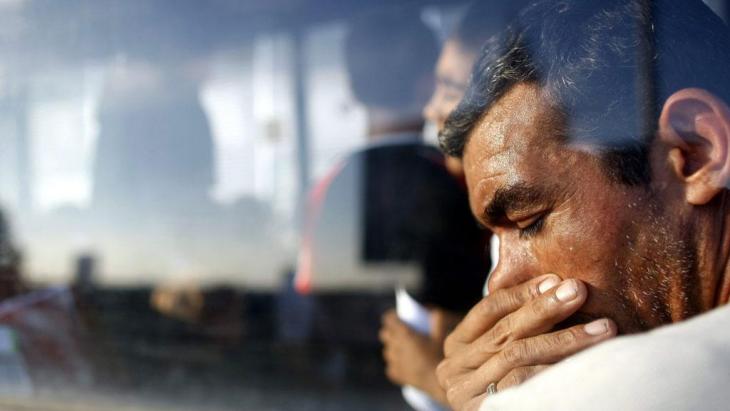30Jul2014
Socially Accepted Racism: How European Antiziganism Prevails
While “Europe” still invokes an image of old money and welfare states in the US, the continent is in fact undergoing its largest humanitarian crisis since World War II. Marginalised and oppressed groups are the greatest victims of unemployment, homelessness, and the neo-Nazi and right-wing populist rhetoric that is spewing hatred across the continent. As they have for centuries, Romani people occupy the spot at the bottom of the ethnic hierarchy, writs the Bluestockings Magazine, featured in the latest edition of the PublicPolicySerbiaWeekly weekly published by the Centre. .
With a new wave of European right-wing extremism, exemplified through the rise of parties such as Jobbik in Hungary and Golden Dawn in Greece, Romani people are increasingly harassed and discriminated against across the entire continent. However, the current persecution is not founded on these political movements, but rather on the deep-rooted and socially acceptable racism against Romani imbedded in European society.
The “Romani problem”, as Thorbjørn Jagland (Chair of the Nobel Peace Prize Committee) refers to it as, is centered around a lack of understanding and respect for a group with fundamentally different languages, cultures, and ways of living than the rest of Europe. Governments increasingly deny any responsibility for the welfare of Romani, who face forced and illegal evictions, geographical segregation, poor healthcare conditions, and terrible educational support. Romani children rarely attend preschool or kindergarten, often have delayed school starts, and are not offered education in their first language (Romani variants). Additionally, they face bullying and discrimination from teachers and classmates alike. As a result, they often score poorly on placement tests, and are handed over to special education schools. This effectively segregates Romani from ethnic minority children: in Slovakia, 85% of children in the special educational system are Romani, even though Romani only comprise 10 % of the population. Romani have much higher illiteracy rates than other European populations, which in turns make them more vulnerable to exploitation and oppression.
In the past four years alone, France has deported 10,000 Romani. Norway has approved legislation outlawing begging, for the explicit purpose of acquiring legal grounds to deport Romani. The Czech Republic, Hungary, Romania, and Slovakia frequently send Romani children to all-Romani schools with sub-par educational quality, in violation of the European Convention on Human Rights. Recently, it was revealed that a Swedish police department has (illegally) kept secret databases of 4,000 people, most of them Romani. More than 1,000 on the list were children. The police claims that there was no ethnic basis for the list, despite its title: “Kringresande” (“Travellers”).
 The issues facing Romani intersect with wider problems, such as poverty, ethnic tensions, the continued schism between Eastern and Western Europe, and the long and bitter history between Romani and ethnic majorities in Europe. However, a continued reluctance to examine the pervasive stereotypes of Romani contributes to the status quo. Divided between gleeful media reports on the “Gypsy invasion” in Western Europe and a romanticised Hollywood portrayal of freedom-loving travellers, policymakers and the public alike fail to acknowledge the complex issues facing Romani today. In the US, it seems, Romani are only known through the “Gypsy archetype”: a passionate temper, fortune-telling and magic, a love of freedom, and criminal inclinations. Cultural representation of Romani, from Carmen and The Hunchback of Notre Dame through One Hundred Years of Solitude and The Witch of Portebello are highly problematic and frequently ignore the actual and historical struggles of the group, as well as the cultural diversity within the Romani diaspora.
The issues facing Romani intersect with wider problems, such as poverty, ethnic tensions, the continued schism between Eastern and Western Europe, and the long and bitter history between Romani and ethnic majorities in Europe. However, a continued reluctance to examine the pervasive stereotypes of Romani contributes to the status quo. Divided between gleeful media reports on the “Gypsy invasion” in Western Europe and a romanticised Hollywood portrayal of freedom-loving travellers, policymakers and the public alike fail to acknowledge the complex issues facing Romani today. In the US, it seems, Romani are only known through the “Gypsy archetype”: a passionate temper, fortune-telling and magic, a love of freedom, and criminal inclinations. Cultural representation of Romani, from Carmen and The Hunchback of Notre Dame through One Hundred Years of Solitude and The Witch of Portebello are highly problematic and frequently ignore the actual and historical struggles of the group, as well as the cultural diversity within the Romani diaspora.Romani women, in particular, are continuously exotified and sexualised in media. This ignores the fact that 61% of married English Romani women have experienced domestic violence, but lack culturally competent support and feel a strong (and justified) distrust of the police and public institutions. Romani women in the UK are three times more likely to miscarry or give birth to stillborn children than the national average, probably because of their lack of access to healthcare and sanitation. Still, Romani women are rarely — if ever — asked about their experiences or invited to create culturally appropriate or ethnically specific support programs.
The historical oppression of Romani people has yet to come to an end, unlike that of other ethnic minorities in Europe. The devastating consequences of centuries of persecution are very much seen today, and more so in the context of financial downturn. European citizens need to accept the uncomfortable truth: that the continued attempts to assimilate Romani people into domineering mainstream cultures is an act of cultural violence against a group that has experienced nothing but cultural violence from our governments, and that the extreme poverty the group faces is an ethical responsibility we must all work towards repairing.
By Miriam Staffansdotter Langmoen, Staff Writer, Bluestockings magazine



